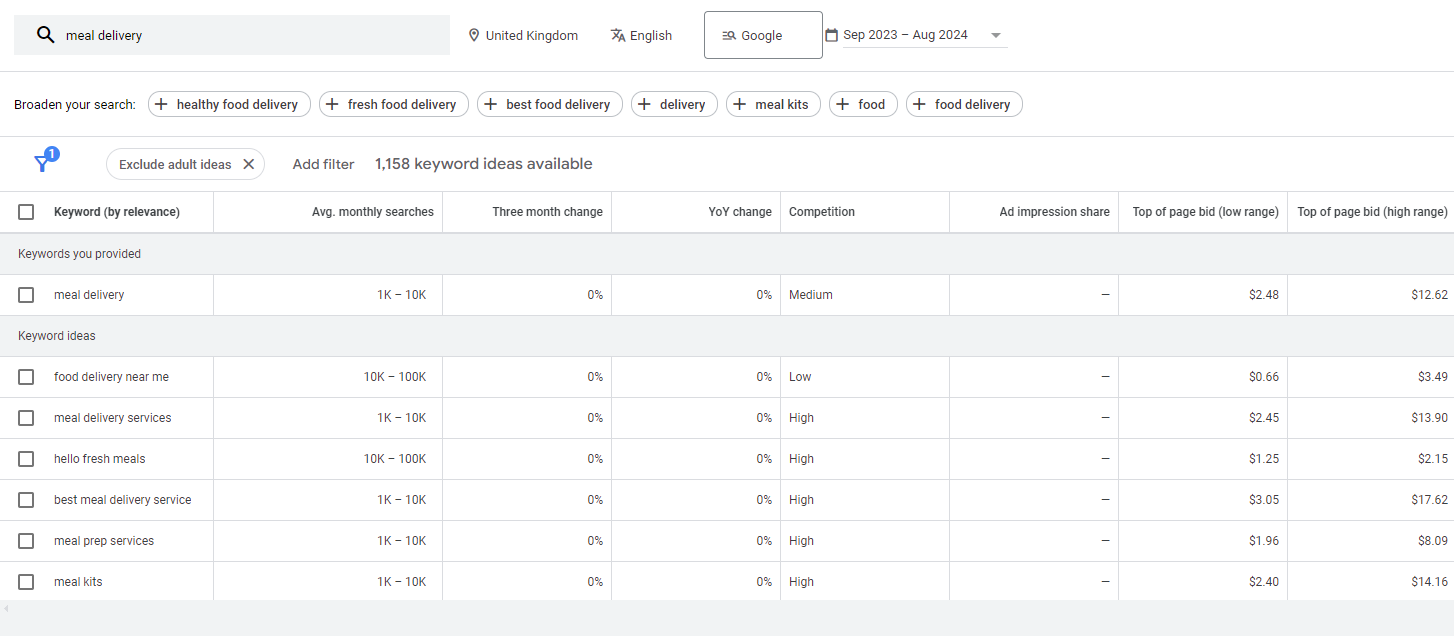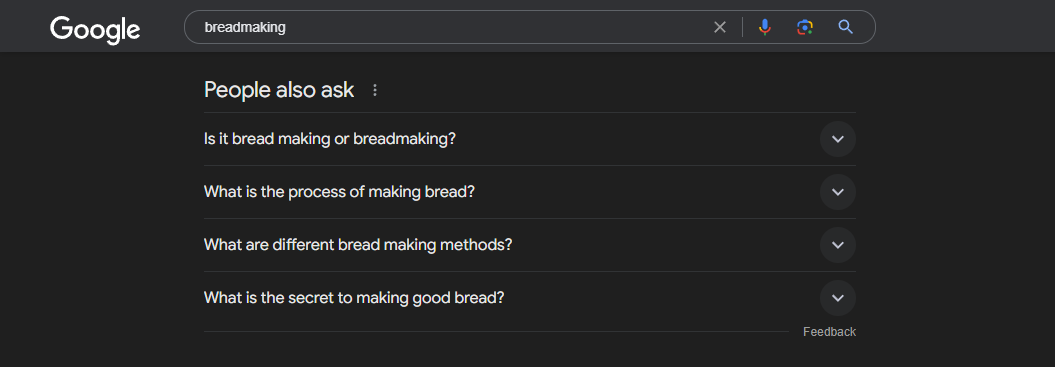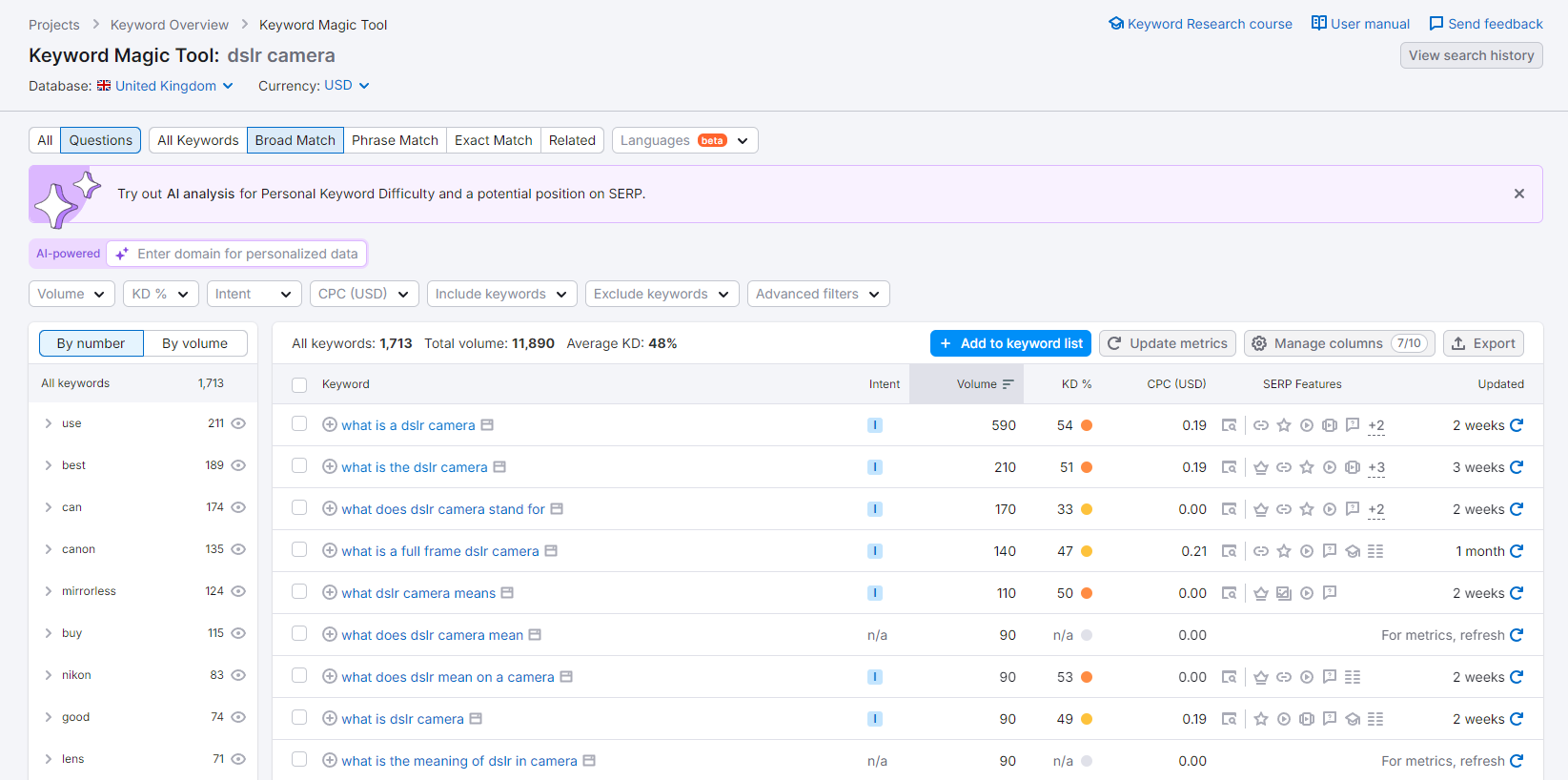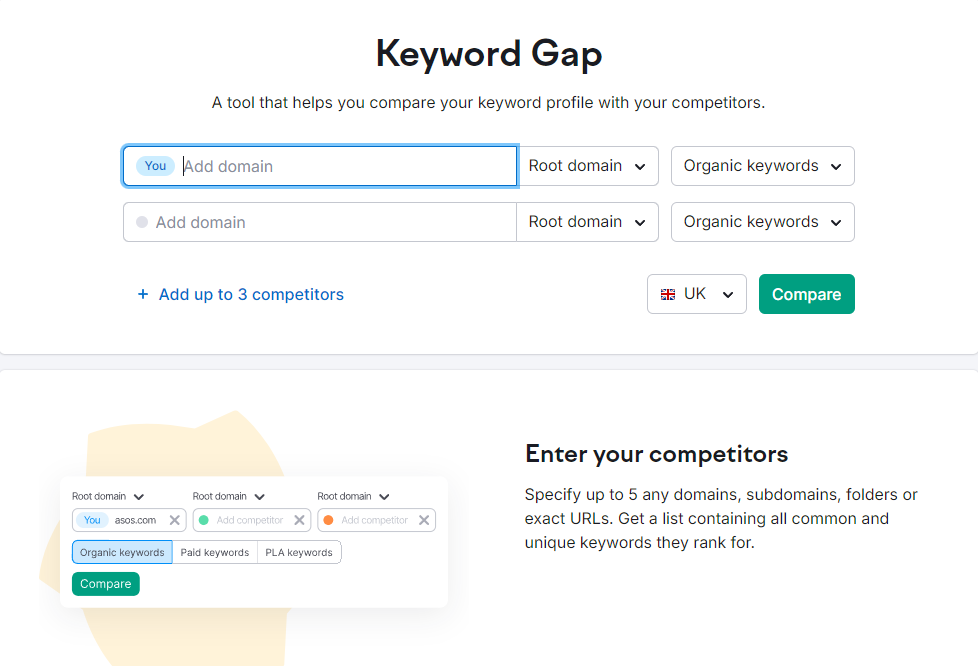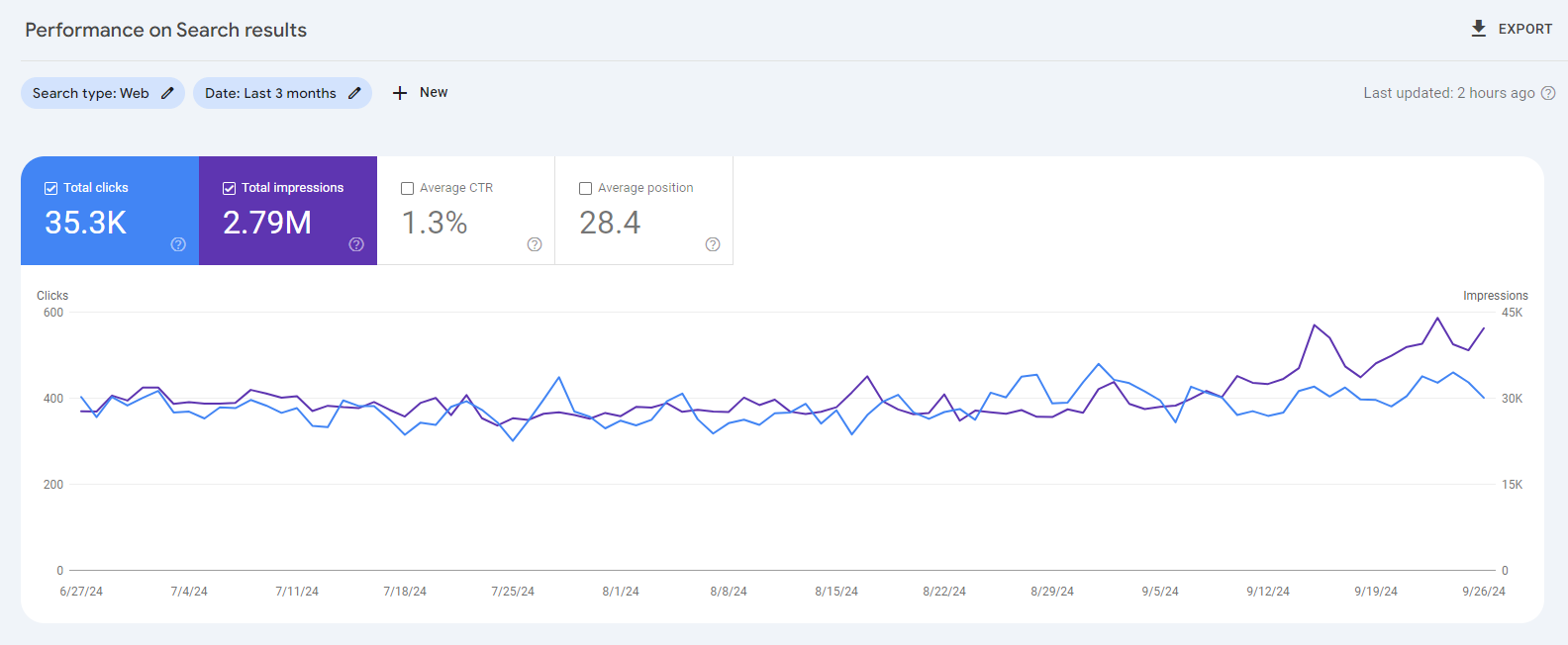The saying, "When you cater to everybody, you end up catering to no one," rings true. Targeting everyone with your site is impossible because you have to satisfy everybody's wants and needs. And everybody should know that appeasing everybody's whims will be the death of your business.
That's why it's important to zero in on a target audience with well-defined psychographics and demographics. From here, you can design your products and services to appeal to this group of people so you can generate more sales and conversions. Whatever other people say doesn't matter because they're not your target audience!
The same goes with search engine optimization (SEO): you need to optimise your website for niche keywords to target the right people on your website. Learn how to do this properly and the benefits of doing so in this post. Let's dive in.
What are Niche Keywords
Unlike broad, general keywords that everyone and their dog are fighting over, niche keywords are longer, highly specific search terms that cater to a particular subset of your audience.
Think of it this way: if "shoes" is a broad keyword, "vegan running shoes for trail marathons" is a niche keyword. It's longer, more specific, and targets a very particular group of people—vegan trail runners looking for performance footwear.
Benefits of Using Niche Keywords in SEO
On the downside, niche keywords have a relatively low average monthly search volume compared to broad keywords. That means people don't search for the keyword or query as often as you want on Google search.
Now, you might be wondering, "Why should I bother with niche keywords if they have lower search volumes?" Well, my friend, that's where the magic happens!
Below are the advantages niche keywords hold over other keyword types that are too good to ignore.
1. Less Competition
Think about this: thousands of websites are vying for broad terms like "fitness tips" or "best smartphones".
But how many are targeting "low-impact cardio exercises for seniors with arthritis" or "best waterproof smartphones for underwater photography"? Significantly fewer, I'd wager.
It's simple math, really: The more specific a keyword is, the fewer websites are likely to be targeting it.
This lower competition means it's easier for your content to rank well for these terms. Instead of battling industry giants with massive budgets and established authority, you're competing in a much smaller pond.
This levels the playing field, giving smaller businesses and websites a fighting chance to secure those coveted top spots in search engine results pages (SERPs).
2. Higher Conversion Rates
The beauty of niche keywords lies in their specificity. While they might have lower search volumes than their broader counterparts, they often come with a much clearer and more well-defined search intent.
The intent of "DLSR camera" isn't clear: do searchers want information about this camera type, find the nearest store that carries DLSR cameras, or what exactly, I'm not sure.
But the user intent is crystal clear for the keyword "Nikon DLSR camera tutorial for beginners"—they already have a Nikon DLSR camera and want to learn how to use it properly, or they want to see how to use this camera type before purchasing it.
This targeted traffic generated by niche keywords is gold dust for your website. These visitors are more likely to engage with your content, spend more time on your site, and ultimately, take the action you want them to—whether that's making a purchase, signing up for a newsletter, or contacting you for more information.
3. Improved Search Visibility
When you're targeting broad, competitive keywords, it can take months or even years to see significant improvements in your rankings.
Google treats authoritative websites better than those just starting out. Suppose you have an established authority about a specific niche or industry. In that case, Google will reward your site by ranking its pages within days and ranking it higher on SERPs!
For relatively new sites, niche keyword research helps you build authority from the ground up.
Because there's less competition, it's easier for search engines to identify your content as relevant and authoritative for these specific terms. This can lead to faster improvements in your search rankings, getting your content in front of the right eyes sooner.
How to Conduct Niche Keyword Research
Now that we've established the importance of niche keywords, let's dive into the nitty-gritty of how to find these golden nuggets for your SEO strategy.
#1 - Brainstorming Seed Keywords
Every great niche keyword strategy starts with a solid foundation of seed keywords. These are the core terms related to your industry, products, or services. But don't just stop at the obvious ones—think about your customers' pain points, questions, and needs.
Start by jotting down the main topics your business covers. For example, if you run a fitness blog, your seed keywords might include "workout routines," "nutrition tips," and "fitness equipment."
But don't stop there. Think about the specific problems your audience faces. Are they struggling with "post-pregnancy workouts"? Are they looking for "vegan protein sources"? Do they need "home exercise equipment for small spaces"?
Google's Keyword Planner is a good place to start. You need to set up a Google Ads campaign to be able to use this feature, although you don't have to launch them. Enter your keyword phrase on this free keyword tool to be presented with relevant keywords to help you jumpstart your campaign.
A quick Google search could also reveal your People Also Ask (PAA) section. These are long-tail keywords related to your niche that you can optimise on your site.
Then there are the Autocomplete and Related search sections of SERPs to help you see potential keywords you can use as seed keywords in your research.
#2 - Using Keyword Research Tools
Once you have your seed keywords, it's time to let technology do some of the heavy lifting. Some popular options include Google Keyword Planner, SEMrush, Ahrefs, and Ubersuggest.
These tools can help you not only expand your seed keyword into a goldmine of opportunities but also validate them.
To effectively find the best niche keywords using these tools, start by plugging your seed keywords into the tool of your choice. In this case, let's use Semrush Keyword Magic Tool. Then, look for keyword suggestions for your seeds, as these are often great niche keywords.
Pay attention to the "related keywords" or "questions" sections, as these can uncover niche topics you might not have thought of.
The great thing about these tools is that they show each keyword's search volume and keyword difficulty. Filtering the results to these terms can help simplify and speed up conducting niche keyword research for your site.
At the same time, don't get lost in these keyword metrics. While they can help speed up the research process, they aren't the only ones that should dictate your choice for the right niche keywords to optimise on your site.
We're looking for specificity and relevance, not necessarily high-volume terms or even what these tools may consider as low competition phrases. Instead, look for keywords with lower competition but high relevance to your business. These are your niche keyword sweet spots.
#3 - Analysing Competitor Keywords
Your competitors can be a goldmine of niche keyword ideas—if you know how to look.
Start by identifying your main competitors. These could be direct business rivals, or simply websites ranking well for your target keywords. A keyword research tool like Semrush's Keyword Gap lets you enter your site URL along with your competitors.
The next page will show you keywords they're ranking for but your site isn't.
Ideally, you want to see pages your competitors are ranking for on the second page of SERPs. Analyse their content and fill in the gaps they're missing in the content. This allows you to create content that's better than the rest!
#4 - Exploring Forums and Communities
One of the most effective ways to find niche keywords is by tapping into the conversations happening in online forums and communities.
Start by identifying forums and communities relevant to your industry. Reddit, Quora, and niche-specific forums are excellent places to begin. For instance, if you're in the fitness industry, you might explore subreddits like r/Fitness or r/nutrition, or visit specialised forums like Bodybuilding.com's community boards.
As you explore these platforms, pay close attention to the language users employ when discussing topics related to your business. Look for recurring questions, pain points, and specific phrases that come up frequently. These can often translate directly into powerful niche keywords.
#5 - Monitoring and Adjusting Keyword Performance
Niche keyword research isn't a one-and-done task. To truly succeed, you need to continuously monitor and adjust your keyword strategy based on performance data.
Start by regularly tracking your keyword rankings. Tools like Google Search Console can provide valuable insights into how your chosen keywords are performing in search results.
Pay attention to which keywords are driving clicks and impressions to your site and which ones aren't.
But don't just look at rankings. Dive deeper into your traffic metrics. Are visitors coming through these niche keywords engaging with your content? Are they converting? Tools like Google Analytics can help you understand how well your niche keyword strategy is translating into actual business results.
From here, be prepared to make adjustments. If certain niche keywords aren't performing as well as expected, consider refining your content or choosing alternative keywords. On the flip side, if you notice particular niche keywords driving significant traffic and conversions, you might want to double down on these areas, creating more content around these successful topics.
Consult with Us for Your Niche Keyword Research Needs
Niche keyword research is a powerful way to elevate your SEO strategy and drive highly targeted traffic to your website. But let's face it - it can be a complex and time-consuming process, especially when you're juggling all the other aspects of running a successful online business.
That's where Charles Floate Training comes in. We've honed our skills in uncovering those hidden gem keywords that can skyrocket your online visibility and conversions. Not only that, but our team of SEO experts is ready to help you overcome any SEO issues your site encounters - whether it's technical, on-page, or off-page.
Contact Charles Floate Training today and unlock the full potential of niche keyword research and beyond.


